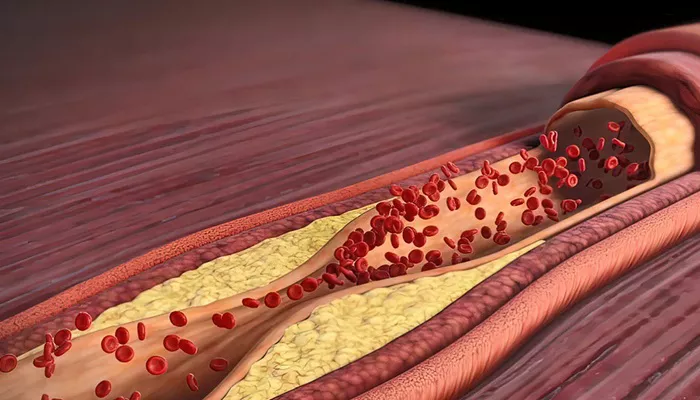Coronary artery disease (CAD) is one of the leading causes of death globally, primarily due to the buildup of plaque in the coronary arteries. This plaque, composed of fat, cholesterol, calcium, and other substances found in the blood, can restrict or block blood flow to the heart, leading to chest pain (angina), heart attacks, and other cardiovascular complications.
Understanding how to reverse coronary plaque is crucial for maintaining heart health and preventing these severe outcomes.
1. Lifestyle Changes: The Foundation of Plaque Reversal
Lifestyle modifications are the cornerstone of reversing coronary plaque. These changes focus on improving diet, increasing physical activity, and managing stress.
a. Diet: Eating Your Way to Heart Health
A heart-healthy diet is fundamental in reversing coronary plaque. Key dietary changes include:
Reducing Saturated Fats and Trans Fats: These fats raise LDL (bad) cholesterol levels, contributing to plaque buildup.
Avoiding foods high in saturated fats (such as red meat and full-fat dairy) and trans fats (found in many fried and processed foods) is essential.
Increasing Fiber Intake: Soluble fiber, found in oats, fruits, vegetables, and legumes, helps lower LDL cholesterol. Aim for at least 25-30 grams of fiber daily.
Incorporating Healthy Fats: Monounsaturated and polyunsaturated fats, found in olive oil, nuts, seeds, and fatty fish, can help reduce plaque buildup.
Eating Antioxidant-Rich Foods: Foods high in antioxidants, such as berries, leafy greens, and nuts, can reduce oxidative stress and inflammation, key factors in plaque formation.
SEE ALSO: The 6 Obvious Symptoms of Coronary Artery Disease
b. Exercise: Strengthening the Heart
Regular physical activity strengthens the heart and helps manage risk factors like high blood pressure, high cholesterol, and obesity. Aim for at least 150 minutes of moderate-intensity exercise or 75 minutes of vigorous exercise per week. Activities such as brisk walking, cycling, and swimming are excellent choices.
c. Stress Management: Reducing the Burden on the Heart
Chronic stress contributes to heart disease by increasing blood pressure and promoting unhealthy behaviors like overeating and smoking. Techniques such as yoga, meditation, deep breathing exercises, and mindfulness can help manage stress effectively.
2. Medical Interventions: Enhancing Lifestyle Changes
While lifestyle changes are essential, medical interventions may be necessary for individuals with significant plaque buildup or those who cannot sufficiently lower their risk through lifestyle alone.
a. Medications: Managing Cholesterol and Blood Pressure
Statins: These medications lower LDL cholesterol and stabilize plaque, making it less likely to rupture and cause heart attacks.
Blood Pressure Medications: Controlling high blood pressure is crucial for reducing the strain on arteries and preventing plaque buildup.
Medications like ACE inhibitors, beta-blockers, and calcium channel blockers are commonly prescribed.
b. Antiplatelet Agents: Preventing Blood Clots
Aspirin and other antiplatelet medications help prevent blood clots from forming on plaque, reducing the risk of heart attacks.
c. Revascularization Procedures: Restoring Blood Flow
In severe cases, procedures such as angioplasty (with or without stenting) and coronary artery bypass grafting (CABG) may be necessary to restore blood flow to the heart. These interventions do not remove plaque but can alleviate symptoms and improve quality of life.
3. Advanced Therapies: Exploring New Frontiers in Plaque Reversal
Emerging therapies and research are offering new hope in the fight against coronary plaque.
a. PCSK9 Inhibitors: A New Class of Cholesterol-Lowering Drugs
PCSK9 inhibitors, such as alirocumab and evolocumab, have shown promise in significantly lowering LDL cholesterol levels and reducing plaque volume. These injectable medications are used in individuals who cannot achieve target cholesterol levels with statins alone.
b. Anti-Inflammatory Therapies: Targeting Plaque Inflammation
Chronic inflammation plays a critical role in plaque formation and instability. Anti-inflammatory medications, like canakinumab, are being investigated for their potential to reduce cardiovascular events by targeting inflammation.
c. Gene Therapy: Addressing Genetic Predispositions
Gene therapy aims to modify genetic factors contributing to high cholesterol and plaque formation. While still in experimental stages, this approach holds potential for individuals with familial hypercholesterolemia and other genetic conditions.
4. Monitoring And Maintaining Heart Health: The Long-Term Strategy
Reversing coronary plaque requires a long-term commitment to heart health. Regular monitoring and follow-up with healthcare providers are crucial.
a. Regular Check-Ups: Keeping Track of Heart Health
Routine check-ups with a cardiologist or primary care physician help monitor cholesterol
levels, blood pressure, and overall heart health. Regular blood tests and imaging studies, such as coronary artery calcium (CAC) scoring, can assess the progress of plaque reversal.
b. Adherence to Treatment Plans: Staying on Course
Adhering to prescribed medications and lifestyle recommendations is vital for maintaining progress. Patients should take their medications as directed and continue with their heart-healthy diet and exercise routines.
c. Support Systems: Building a Network
Support from family, friends, and healthcare providers can make a significant difference in managing heart health. Joining support groups or cardiac rehabilitation programs can provide motivation and encouragement.
Conclusion
Reversing coronary plaque is a multifaceted approach that requires lifestyle changes, medical interventions, and ongoing monitoring. By understanding the factors that contribute to plaque formation and taking proactive steps to address them, individuals can improve their heart health and reduce their risk of cardiovascular events. Commitment to a heart-healthy lifestyle, adherence to treatment plans, and support from healthcare providers are essential for successfully reversing coronary plaque and maintaining long-term heart health.

